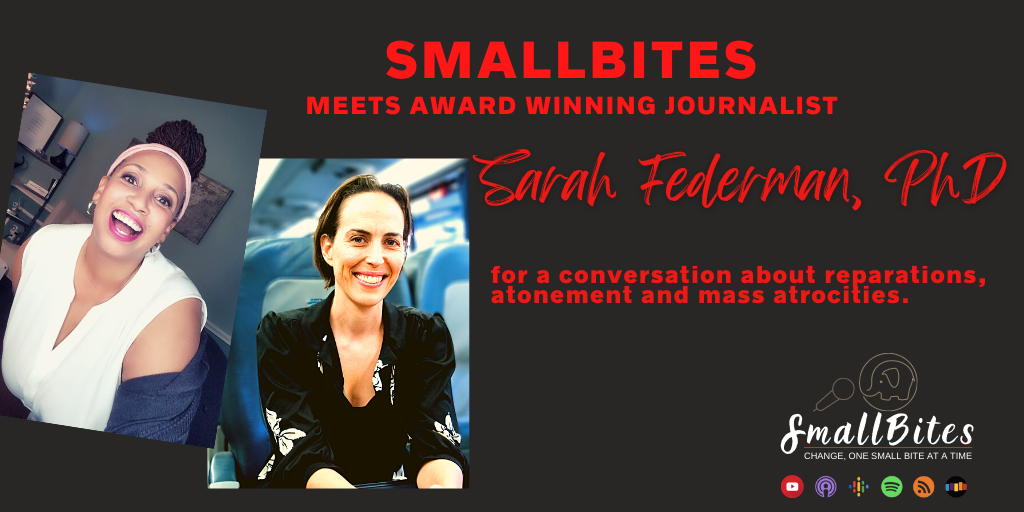
Yes, it’s summer. But I’m back anyway!
This is part 2 of a conversation with Sarah Federman on enslavement within the context of mass atrocity ‘reckoning’. (Listen to part 1 here.) Highlights in this conversations include suggestions and recommendations for impactful apologies and ways to acknowledge ties to harms that still impact communities in the present. The Baltimore Sun provides an exemplary template for what needs to be said–in government, in corporations, in organizations–in order for us to heal and move forward as a nation. This episode begins to explore ways to talk about present day ties to mass atrocities of the past without indicting people who themselves may be struggling with poverty or disenfranchisement. It also acknowledges the difficulty of the “it wasn’t me, I wasn’t there” argument. Come back for part 3 next week.
About the guest:
Sarah Federman is an Associate Professor of Conflict Resolution at the University of San Diego’s Kroc School of Peace Studies. She is the author of the award winning Last Train to Auschwitz: The French National Railways and the Journey to Accountability (2021). She has also written for the Harvard Business Review and the Journal of Business Ethics concerning the corporate obligation to atone for participation in mass atrocity such as genocide, slavery, and violence associated with colonialism. In 2022, she testified before Congress concerning the responsibility of U.S. banks to respond to their slavery ties. This summer her co-authored anthology “Narratives of Mass Atrocity: Victims and Perpetrators in the Aftermath” will be published by Cambridge University Press. Federman comes to this work after a decade as an international advertising executive working with companies such as Google and NFL.
